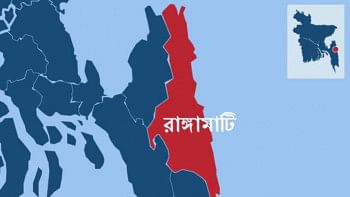Situation in Pakistan
The House will have followed in the news the unfolding events since the weekend. In brief, on November 3, President Musharraf declared a state of emergency and the suspension of Pakistan's constitution. He has issued a new Provisional Constitutional Order (PCO), the two key features of which are:
- The suspension of constitutional articles guaranteeing security of the person, safeguards on arrest and detention, freedom of movement, assembly, association and speech, and equality of citizens; and,
- The removal of the Supreme Court's authority to issue any order against the president, prime minister or any person exercising powers or jurisdiction under their authority, or to challenge the PCO.
In addition, the president has issued separate ordinances to tighten up regulations for print and electronic media, forbidding them from criticising the head of state, military or judiciary, showing bodies of suicide bombers or their victims, or broadcasting anything "prejudicial to the maintenance of law and order."
Another effect of the PCO is to suspend all the Supreme Court judges, pending their taking a new oath of allegiance. We understand that fewer than half of the present bench of nineteen judges have taken the new oath. The former chief justice, Iftikhar Chaudhry, and fourteen of his colleagues have been dismissed. Hundreds of other civil society leaders and political activists have been detained or placed under house arrest.
I have today spoken to our high commissioner in Islamabad. Our high commission and other partner missions and embassies are in close touch with civil society and other political figures who are the subject of restrictions and are expressing our concerns to the government and all other relevant authorities at all levels.
The whole House will, I am sure, share the government's grave concern at these developments. The government of Pakistan says they are temporary. It is vital that they are so. We are very much aware of the terrorist threat with which the government of Pakistan has to grapple and which President Musharraf has cited in justification for his decision to suspend the constitution.
The bombings over the last two weeks -- in Karachi, Rawalpindi, and elsewhere -- have resulted in the murder and injury of hundreds of innocent victims. We have deplored these attacks and reiterated our support and determination to work in partnership with the Pakistani authorities to counter this menace. But, since the weekend, we have seen actions that have set back the process of democratic transition, which is essential for the future stability and security as well as for the sustainable development of Pakistan.
I have made clear our concerns on the telephone to Pakistan's Prime Minister Aziz and Foreign Minister Kasuri, as well as Mrs. Bhutto and Nawaz Sharif, and indicated what actions we now expect the government to take. Specifically, we call on the government of Pakistan to:
- Implement the necessary conditions to guarantee free and fair elections on schedule in January.
- Release all political prisoners, including members of the judiciary and human rights activists, and pursue energetically reconciliation with the political opposition.
- Honour the president's commitment to step down as chief of army staff by November 15.
- Relax restrictions on the media, including the BBC.
The stability and development of Pakistan matter to the UK. Pakistan is a vital partner for us in tackling the serious threat of terrorism and extremism against UK targets in the region and at home. We also need to work closely with Pakistan in promoting stability in the wider region, not least in Afghanistan, and in tackling a range of serious issues such as proliferation, drugs, migration and the environment.
For the medium and longer-term, we are convinced that democracy and the rule of law are the allies of stability and development of Pakistan. Such stability is essential for economic growth. There has been much positive development in recent years. We have enjoyed a successful partnership between Pakistan and DFID. We are looking forward to the implementation of a new, expanded programme of co-operation from 2008-10 which includes a focus on partnership in education. We do not want to see these positive developments for the poorest members of Pakistani society put at risk now.
Our concerns are shared by Pakistan's other friends. I have been in touch with European counterparts from France, Germany, and Portugal. I have spoken to the US secretary of state, Condoleeza Rice, and to Javier Solana, the EU's high representative. There is a unanimous view from the international community that democracy and human rights and political freedoms and constitutional rule are the allies of security and stability in Pakistan. And there is a unanimous view that President Musharraf has very important responsibilities to fulfil his commitments at this vital time for Pakistan. We are following developments closely and seeking to co-ordinate our response so that our own vital interests are not damaged.
The friends of Pakistan know this is a critical time.
David Miliband, M.P. is British Foreign Secretary. He delivered the statement above in the House of Commons on November 7.

 For all latest news, follow The Daily Star's Google News channel.
For all latest news, follow The Daily Star's Google News channel. 



Comments